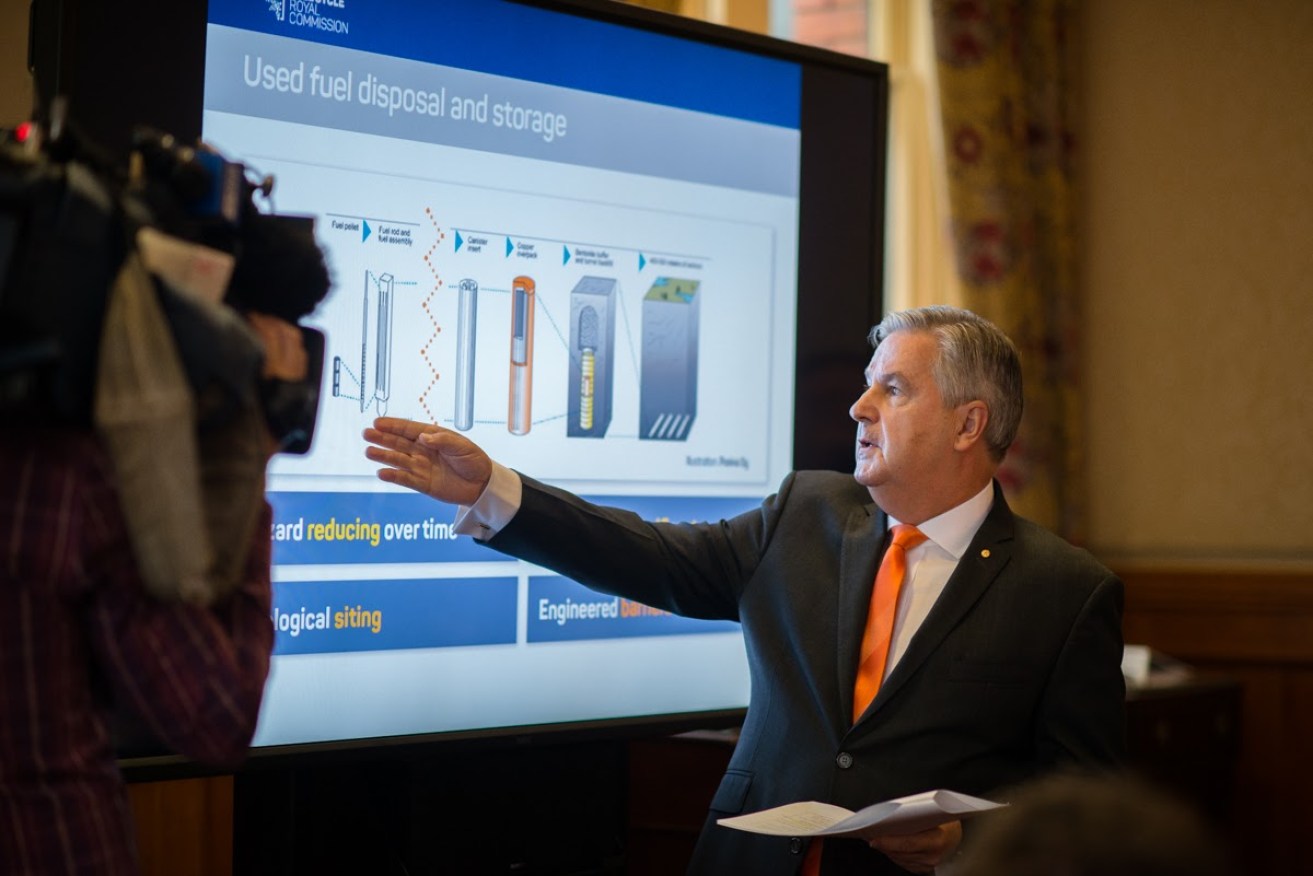Mixed response as nuclear consultation begins
There have been mixed reactions in the first rounds of public consultation following the release of the nuclear fuel cycle royal commission’s tentative findings report.


Royal Commissioner Kevin Scarce explaining his findings. Photo: Nat Rogers/InDaily
The first five days of consultation on the report – which says that the state could earn $445 billion over several decades by storing medium to high level nuclear waste – have drawn safety concerns but also a focus on the financial benefit for SA.
Royal Commissioner Kevin Scarce told reporters this morning that the commission has held community meetings across the state to gauge support for the proposals, including the Iron Triangle, the South-East, the APY lands and the riverland.
“We’ve explained the tentative findings [and] encouraged them to be part of the debate,” he said.
“We’ve had about three solid messages throughout this process. People want us to unpack what social consent, what community consent means. People are really interested in how we can prove that we can safely store spent fuel for hundreds of thousands of years. [And] people want to unpack, as well, the issue of how do you ensure that future generations of south Australians get a benefit from this?”
Asked if the commission had come across many NIMBYs (not in my backyard-ers) during the consultation, Scarce told reporters: “yes, I think the people who tended to be the most vocal at the meetings were people who were opposed”.
“But there’s always a steady stream afterwards who talk about ‘I’m happy … about this recommendation or that.
“There’s a lot of emotion.
“It’s hard to judge, overall, the mood of the community.”
Scarce said social consent, safety and generational benefits would form major parts of the final report, due in May, which he said he hoped would be “digestible” and about 140 pages long (plus more “technical volumes”).
He said there were examples overseas where high level nuclear waste dumps had been demonstrated to be safe.
However, he said, if the community support isn’t there, nothing will proceed.
“Overall (there has been) lively debate and certainly a process of continuing to inform us about the issues that concern the community,” said Scarce.
“(However) it’s open for the discussion.”
Scarce said that his final report would be “specific” about what “social consent” should mean.
“I expect us to be able to define that … It’ll be quite specific,” he said.
Scarce said that the commission would not be discussing specific locations for dump sites, nor had it held any discussions with local councils.
“No local councils, no decisions on locations,” he said.
“I’m not getting engaged in locations because I’m not qualified to make that sort of decision.
“That’s not my job.
“(However) where we have important aquifers, where there is seismic activity you wouldn’t even consider a facility of this size.”
And any site would have to feature “stable geology and an arid environment”.
“What we have been concerned with is understanding what the geology is, the hydro-geology and the seismic issues so that we are confident there are sufficient areas in the state to house a repository.”




